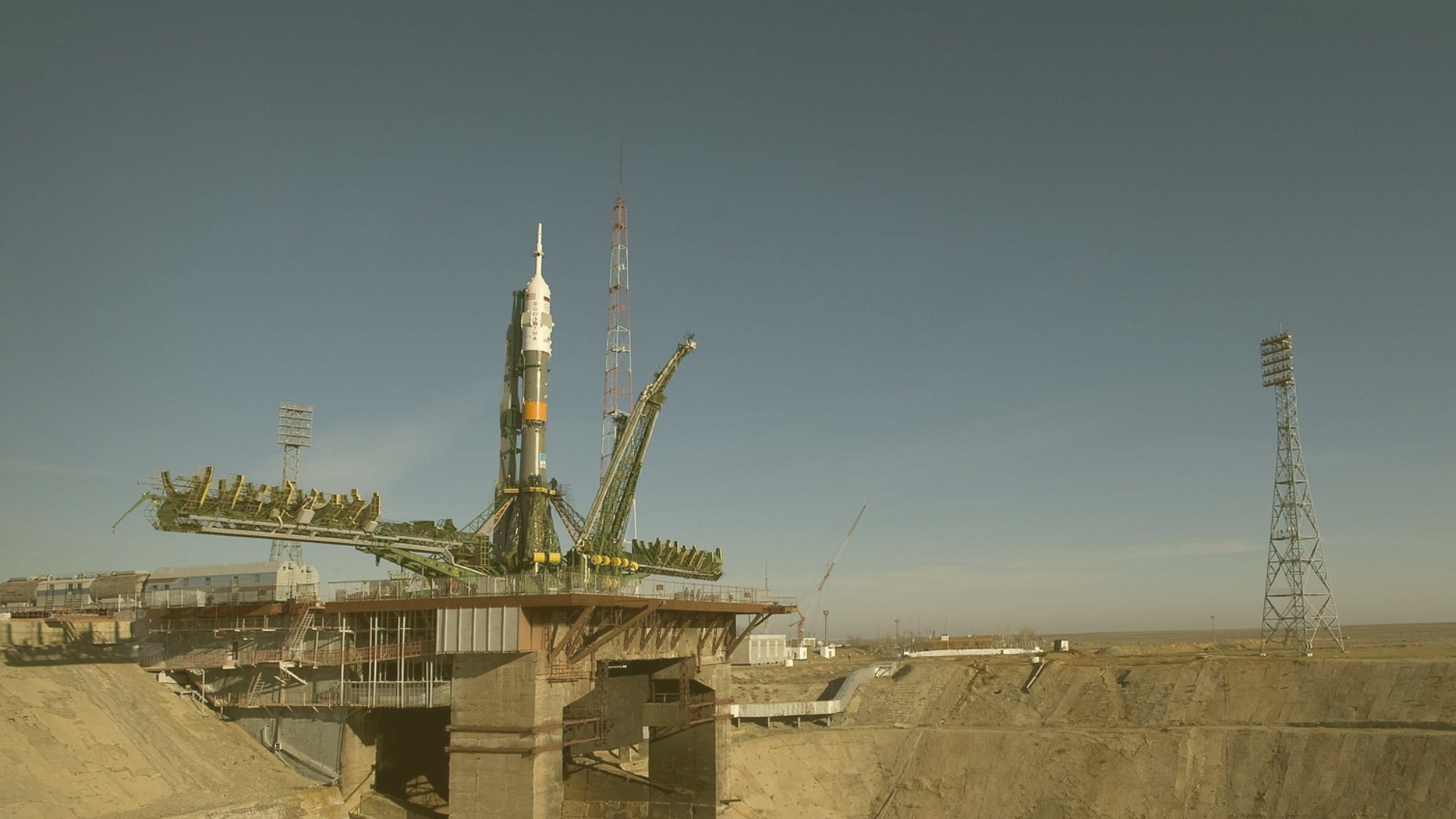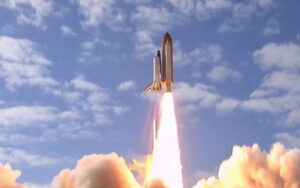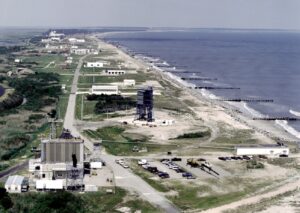Space Businesses that Deny Russia’s War in Ukraine
11th Apr 2022
Many space businesses have experienced the consequences of the war in Ukraine led by the Russian Federation. British-Indian OneWeb was among the first space businesses to show their position and stop using Russian launch services. Being a part of the Russian state machine, Roscosmos was almost the first to be hit and feel the consequences of the initiated war, considering that Russia has likely now lost all future launches of the satellites to its major competitor – SpaceX.
Having any business with Russia, whether using their services and paying them, investing in Russian companies, or receiving investments from Russia, would show support for the war. Many businesses have already started breaking ties with Russia. Companies including Airbus and Boeing have already stopped supplies for the Russian aviation industry. AST Spacemobile has cancelled a launch of its satellites planned on the Soyuz rocket. And RBC Signal claims to have cut its ties with Russian ground station partners and satellite operators. ESA has suspended its ExoMars program.
Although, it seems like not all businesses are ready to get rid of Russian-related activities. We have gathered what information we could find (at the time of going to press) any well-known space companies that potentially still rely on Russian businesses or business elites. The data is partially based on submissions by volunteer researchers.
#1. Germany-based Exolaunch
Exolaunch is one of the companies with apparent ties to the Russian space industry. The company was started by Dmitry Bogdanov. Initially, Exolaunch organised launches on Soyuz rocket launchers; they did not offer any other launch opportunities for around six years. Previously known as ECM Space, they had partnerships with Russian Glavkosmos and Roscosmos for educational goals. Zhanna Medvedeva, their VP of launch, previously worked at Glavkosmos (Roscosmos’s subsidiary). The company has also changed its name before starting to offer services on launchers other than Soyuz.
#2. Japanese Axelspace
This Tokyo-based business has not yet made its final decision regarding the Soyuz launch. The company’s EO satellites were planned for launch in late 2022. After Russia had started the war, Axelspace emphasised its concern about the future launch. They did not cancel the launch, and the company is still monitoring how the situation unfolds. At the same time, the Japanese government has already imposed sanctions on Russian businesses. And it’s likely that those sanctions concern the space industry as well.
#3. Indian Space Research Organisation
Just in February, the research organisation has signed an agreement for cooperation with the Russian space enterprise. However, the destiny of this cooperation is still unclear. Though delays have been reported in the joint project, India still hasn’t come up with a position regarding further cooperation. This happened even though sanctions on the Russian space industry could serve as a boost for the Indian space effort. Yet, considering India’s position in terms of votes for UN resolutions on the Ukrainian-Russian topic, India might choose to keep cooperation with Russia.
#4. American Moon Express
The company is actively engaged in the development of rovers for mining on the Moon and has connections with Russia. Timur Artemiev, a co-founder of the Russian chain of shops selling mobile phones Euroset, is on the company’s Angel investors list. Another Russian investor, Dmitry Chernyak, formerly connected to the Russian A1 group (Alfa Group Consortium), has also invested in Moon Express and is one of the company’s Angel investors. He was also one of the XPRIZE innovation advisors, and Moon Express took part in the contest.
#5. American Phantom Space
CEO and co-founder of the company that develops and launches satellites into space – Jim Cantrell – has long been connected to Russia. He was in Moscow at the time of the fall of the Soviet Union. He later came back to the US and handled the cooperation between the US and Russia on various missile defence programs. He frequently visited Russia to discuss the use of solar sail spacecraft by Russians, potentially use Russian rockets for travel to Mars, and visit major Russian space companies. It has not been clarified whether he still maintains those links.
#6. New Zealand-based Rocket Lab
The company developing its own launcher with offices in New Zealand and the US is an unlikely participant on this list. Nevertheless, we found out that it also has connections with the Russian world. Bessemer Venture Partners is one of Rocket Lab’s investors. As a matter of fact, the investment fund has also invested in Skolkovo, an investment amount reaching $20 million. The fund has also made direct investments in a couple of Russian startups, such as KupiVIP and Enforta. With such an avid interest in the Russian tech landscape, the fund seems to be powering Russian damaging potential.
#7. Switzerland-based Destinus
This company is connected to Russia through its founder Mikhail Kokorich. He applied for asylum in the US, accusing Putin’s regime of political persecution, but during Kokorich’s early career, he was closely connected to Mikhail Medvedev, Putin’s protege. He met with Medvedev. He worked in a top position in a company with owners related to Medvedev. Kokorich’s American company Momentus showed how damaging Russian connections could be for a business. And though Kokorich expressed support to Ukraine (because of Ukrainian investors), he’s now actively trying to clear Russians from responsibility for the war.
#8. Canadian Farmers Edge
Despite business activities in Ukraine and many farmers suffering from the consequences of the Russia-initiated war in the middle of Europe, the company keeps silent. Recently, Farmers Edge’s CEO left his position in the company. There’s no clear answer as to whether he left the company on his own or investors asked him to do so following the company’s poor performance. Yet, his departure might also be a result of strong ties to Russia. Ex-CEO’s wife and Farmers Edge’s CMO, Marina Barnes, is Russian. She is also the director of a representative office of the company in Russia and strongly advocated the development of the CIS market.
#9. Italian SITAEL
The company headquartered in Italy has also made no statement regarding the war in Ukraine. At the same time, back in 2018, the company was communicating with Glavkosmos on potential partnerships. They discussed opportunities for launches on Soyuz and the supply of parts for satellites from Russia. Back then, the companies agreed to continue the dialogue about other cooperation opportunities. As of now, it is unclear how deeply SITAEL relies on its Russian partners. However, with the company making no statement on Ukraine and taking a waiting position, one could assume that the connection is deeper than one might think.
Despite some effort taken by the space industry players after Russia annexed Crimea and invaded Donbas in 2014, the global space industry is still reliant on the Russian space industry. Obviously, many companies still prefer using the services of Russian state corporations. Even though using those services infuses money into the Russian budget and pays for the war.
After several statements by the Russian space industry’s chief Dmitry Rogozin, the space industry actors now realise the extent to which the Russian space industry is connected to the state machine and its activities. The global space industry now sees that the Russian space industry is responsible for the war just like any other Russian business. And it looks like the Russian space industry will get as isolated because of the imposed space sanctions, despite its achievements and cheap technologies from the times of the Soviet Union.






Thank you for your comment! It will be visible on the site after moderation.